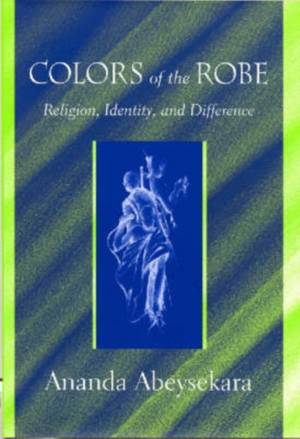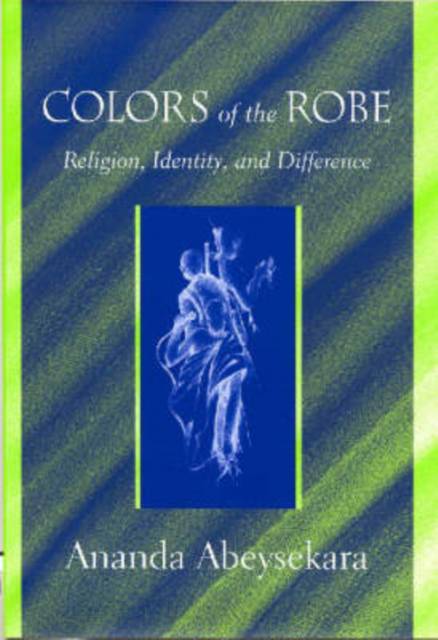
Bedankt voor het vertrouwen het afgelopen jaar! Om jou te bedanken bieden we GRATIS verzending (in België) aan op alles gedurende de hele maand januari.
- Afhalen na 1 uur in een winkel met voorraad
- In januari gratis thuislevering in België
- Ruim aanbod met 7 miljoen producten
Bedankt voor het vertrouwen het afgelopen jaar! Om jou te bedanken bieden we GRATIS verzending (in België) aan op alles gedurende de hele maand januari.
- Afhalen na 1 uur in een winkel met voorraad
- In januari gratis thuislevering in België
- Ruim aanbod met 7 miljoen producten
Zoeken
Omschrijving
Colors of the Robe probes the Sri Lankan world of Buddhism and politics and suggests innovative directions for the global study of religion, culture, and violence. In a volume that surpasses other studies in locating Sri Lankan Buddhism in its sectarian, ethnic, cultural, social, and political constructions, Ananda Abeysekara illuminates the shifting configurations that animate the relations connected with postcolonial religious identity and culture. Drawing on extensive field research in Sri Lanka, Abeysekara illustrates how differing discourses about Buddhism come into central view and then fade. He develops the concept of "minute conjunctures of contingency" and places it in modest opposition to the Foucauldian (and postcolonial) conceptions of history and identity. Abeysekara suggests that the conjunctures of contingency help realize that Buddhism, identity, and difference do not remain simply available for disciplinary apprehension. This way of thinking about the unavailability of Buddhism, he contends, has profound political implications for how we might more generally think about and begin to disrupt entrenched presumptions of postcolonial cultural difference.
Specificaties
Betrokkenen
- Auteur(s):
- Uitgeverij:
Inhoud
- Aantal bladzijden:
- 288
- Taal:
- Engels
- Reeks:
Eigenschappen
- Productcode (EAN):
- 9781570037870
- Verschijningsdatum:
- 21/07/2008
- Uitvoering:
- Paperback
- Formaat:
- Trade paperback (VS)
- Afmetingen:
- 152 mm x 229 mm
- Gewicht:
- 426 g

Alleen bij Standaard Boekhandel
+ 83 punten op je klantenkaart van Standaard Boekhandel
Beoordelingen
We publiceren alleen reviews die voldoen aan de voorwaarden voor reviews. Bekijk onze voorwaarden voor reviews.









